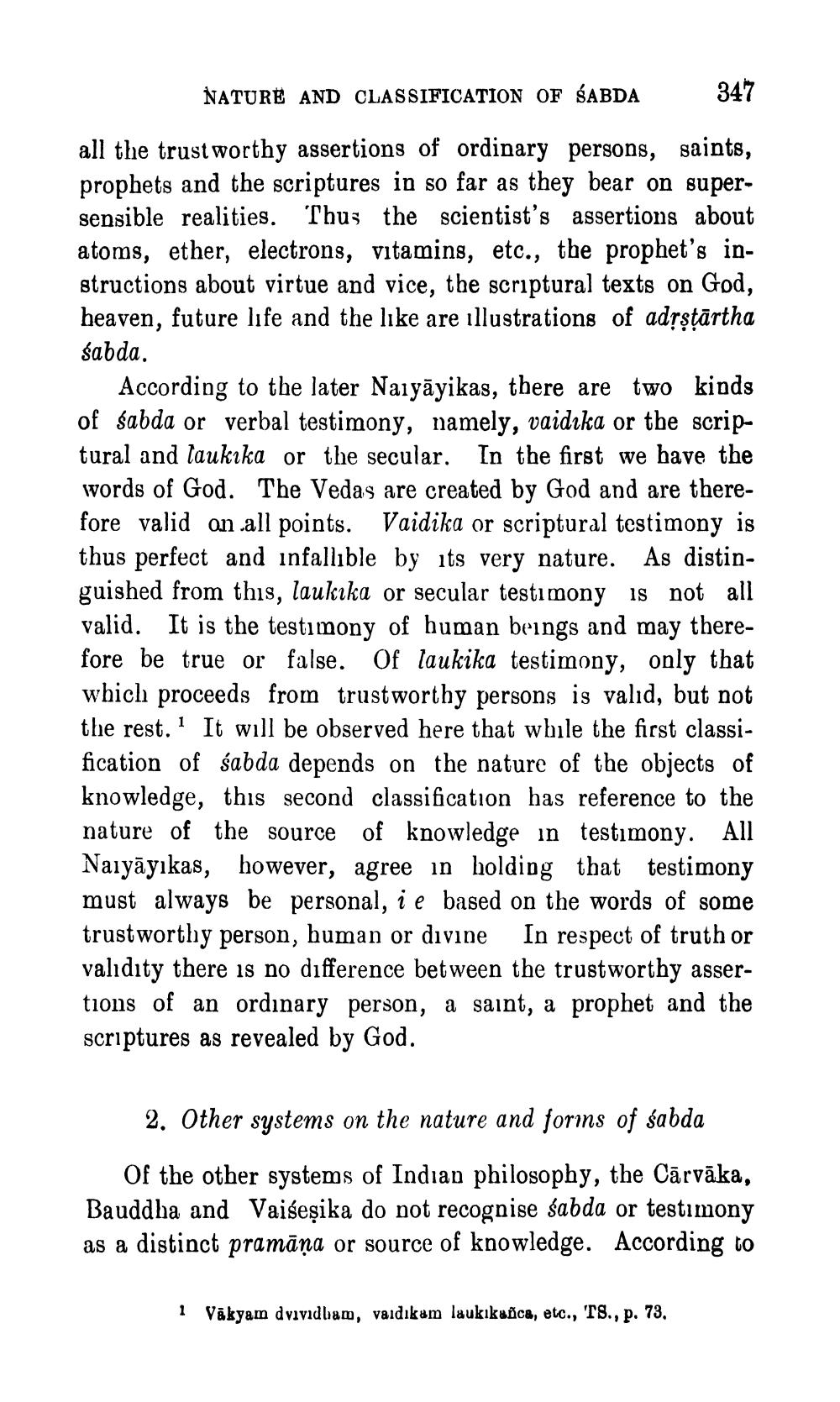________________
NATURE AND CLASSIFICATION OF SABDA
347
all the trustworthy assertions of ordinary persons, saints, prophets and the scriptures in so far as they bear on supersensible realities. Thus the scientist's assertions about atoms, ether, electrons, vitamins, etc., the prophet's instructions about virtue and vice, the scriptural texts on God, heaven, future life and the like are illustrations of adrstārtha sabda.
According to the later Naiyāyikas, there are two kinds of sabda or verbal testimony, namely, vaid ka or the scriptural and laukika or the secular. In the first we have the words of God. The Vedas are created by God and are therefore valid on all points. Vaidika or scriptural testimony is thus perfect and infallible by its very nature. As distinguished from this, laukika or secular testimony is not all valid. It is the testimony of human beings and may therefore be true or false. Of laukika testimony, only that which proceeds from trustworthy persons is valid, but not the rest." It will be observed here that wbile the first classification of sabda depends on the nature of the objects of knowledge, this second classification has reference to the nature of the source of knowledge in testimony. All Naiyāyikas, however, agree in holding that testimony must always be personal, ie based on the words of some trustworthy person, human or divine In respect of truth or validity there is no difference between the trustworthy assertions of an ordinary person, a saint, a prophet and the scriptures as revealed by God.
2. Other systems on the nature and forins of sabda Of the other systems of Indian philosophy, the Cārvāka, Bauddha and Vaiseșika do not recognise sabda or testimony as a distinct pramāņa or source of knowledge. According to
1
Vākyam dvividbam, vaidikam laukikañca, etc., TS., p. 73,




